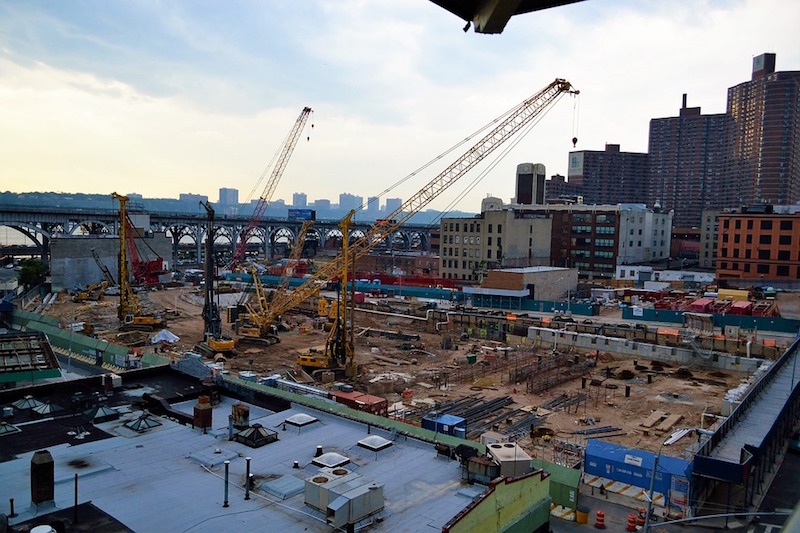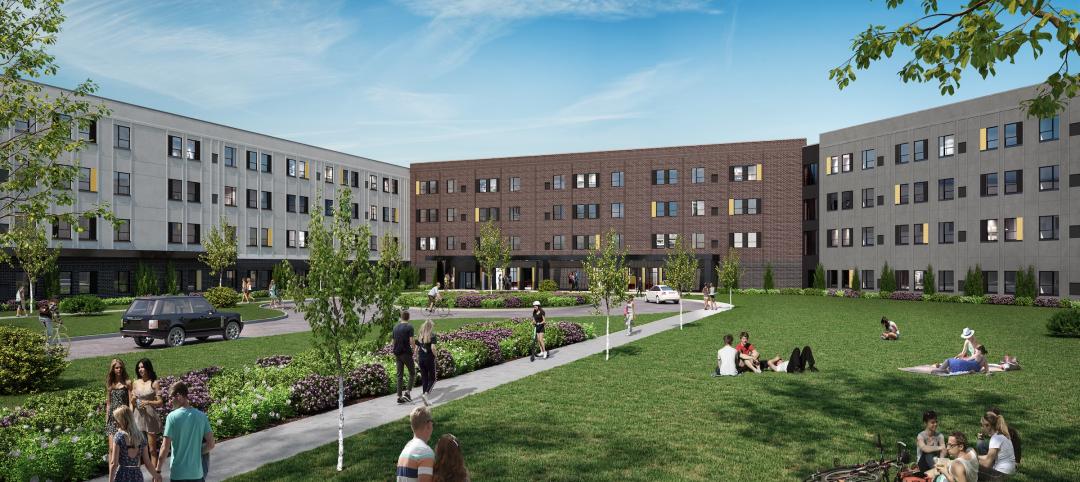Angelo Perrymen, CEO of Perryman Construction, has created his annual list of the top trends that will affect construction in the northeast region in 2018. “As we head into calendar year 2018, we are optimistic, especially in the hotel, pharmaceutical, public projects, and historical renovation," Perryman says. "Although there are mixed signals out there relative to the economy, infrastructure priority and rising interest rates, we are anticipating a positive year.”
Perryman sees the following trends unfolding:
1. More renovation and restoration
Everyone focuses on the new construction around town but we have a lot of great older buildings in need of renovation. Look for the renovation trend restoring the older buildings in Philadelphia.
2. Making education the priority solution to keeping Millennials in the City
Leaders worry about millennials moving to the suburbs. Philadelphia needs less talk and more action prioritizing education quality as a key solution to keeping millennials in the City. Perhaps the hurdle is feeling like we must do it all at once. We don’t. Look at the solution in 3 year segments. Focus on and fix the 3 years from K-2nd grade to start and then advance the program to the next 3 years and so on to match the millennials children getting older.
3. Using our hubs to attract national investment
Philadelphia will continue to organize itself by environments – science center, health, pharma, finance, Pennovation, etc. Leaders should use these hubs to attract national investment.
4. More mixed use buildings to be planned and built
More mixed use buildings will be planned as owners hedge risk by accommodating diverse uses and seeing which will be stronger.
5. More effective construction management techniques to offset potential negatives in the market
2018 should be a good year for construction but there are at least 4 things that can influence costs: energy, imported materials, competition for employees & interest rates. Construction companies that have become better managers will succeed in this environment.
6. More investment from outside the region
Outside investors are starting to realize what great value the Philadelphia region has for their projects. To sustain our skyline of cranes, Philadelphia must create a strong environment for building speculation as other cities have. Key catalysts include friendlier tax climate, more job-focused education opportunities to train our workforce in advance of projects coming in and government support facilitating permits and approvals.
Related Stories
Student Housing | Jun 25, 2024
P3 student housing project with 176 units slated for Purdue University Fort Wayne
A public/private partnership will fund a four-story, 213,000 sf apartment complex on Purdue University Fort Wayne’s (PFW’s) North Campus in Fort Wayne, Indiana. The P3 entity was formed exclusively for this property.
Sustainability | Jun 24, 2024
CBRE to use Climate X platform to help clients calculate climate-related risks
CBRE will use risk analysis platform Climate X to provide climate risk data to commercial renters and property owners. The agreement will help clients calculate climate-related risks and return on investments for retrofits or acquisitions that can boost resiliency.
MFPRO+ News | Jun 24, 2024
‘Yes in God’s Backyard’ movement could create more affordable housing
The so-called “Yes in God’s Backyard” (YIGBY) movement, where houses of worship convert their properties to housing, could help alleviate the serious housing crisis affecting many communities around the country.
Student Housing | Jun 20, 2024
How student housing developments are evolving to meet new expectations
The days of uninspired dorm rooms with little more than a bed and a communal bathroom down the hall are long gone. Students increasingly seek inclusive design, communities to enhance learning and living, and a focus on wellness that encompasses everything from meditation spaces to mental health resources.
Museums | Jun 20, 2024
Connecticut’s Bruce Museum more than doubles its size with a 42,000-sf, three-floor addition
In Greenwich, Conn., the Bruce Museum, a multidisciplinary institution highlighting art, science, and history, has undergone a campus revitalization and expansion that more than doubles the museum’s size. Designed by EskewDumezRipple and built by Turner Construction, the project includes a 42,000-sf, three-floor addition as well as a comprehensive renovation of the 32,500-sf museum, which was originally built as a private home in the mid-19th century and expanded in the early 1990s.
Building Technology | Jun 18, 2024
Could ‘smart’ building facades heat and cool buildings?
A promising research project looks at the possibilities for thermoelectric systems to thermally condition buildings, writes Mahsa Farid Mohajer, Sustainable Building Analyst with Stantec.
University Buildings | Jun 18, 2024
UC Riverside’s new School of Medicine building supports team-based learning, showcases passive design strategies
The University of California, Riverside, School of Medicine has opened the 94,576-sf, five-floor Education Building II (EDII). Created by the design-build team of CO Architects and Hensel Phelps, the medical school’s new home supports team-based student learning, offers social spaces, and provides departmental offices for faculty and staff.
Mass Timber | Jun 17, 2024
British Columbia hospital features mass timber community hall
The Cowichan District Hospital Replacement Project in Duncan, British Columbia, features an expansive community hall featuring mass timber construction. The hall, designed to promote social interaction and connection to give patients, families, and staff a warm and welcoming environment, connects a Diagnostic and Treatment (“D&T”) Block and Inpatient Tower.
Codes | Jun 17, 2024
To avoid lawsuits, contractors and designers need to do more than comply with codes
Climate change is making design and construction more challenging and increasing the potential for lawsuits against building teams, according to insurance experts. Building to code is not enough to reduce liability because codes have not kept up with the rapid climate changes that are making extreme weather more common.
Concrete Technology | Jun 17, 2024
MIT researchers are working on a way to use concrete as an electric battery
Researchers at MIT have developed a concrete mixture that can store electrical energy. The researchers say the mixture of water, cement, and carbon black could be used for building foundations and street paving.

















